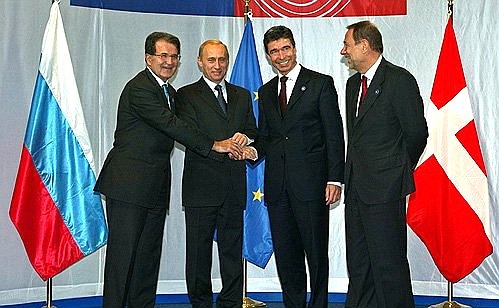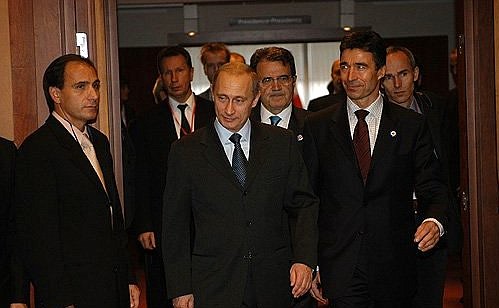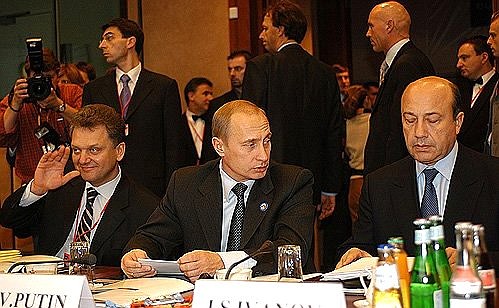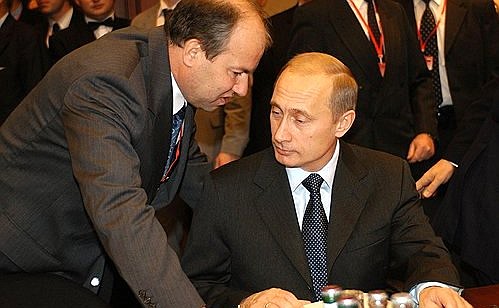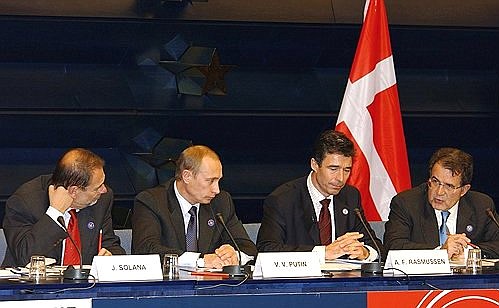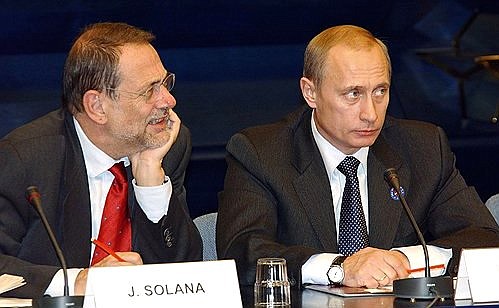The summit was obliged to change its original venue of Copenhagen as it was hosting the so-called World Chechen Congress, attended by many people suspected by Russia of international terrorism. The Government of Denmark, which currently holds the Presidency of the EU, requested the summit be transferred to Brussels.
The summit discussed a wide range of problems concerning bilateral trade, economic partnership, alliance against international terrorism, prospects for the EU enlargement in 2004, and the related problem of supplies and transport links for the Kaliningrad Region.
The summit also discussed international issues—in particular, the situation in Transdnester, the Middle East and Afghanistan, and the problems surrounding Iraq.
The Russian delegation briefed the EU leadership on current economic and social reforms in Russia. EU spokesmen expressed support for Russia’s progress in strengthening democratic principles in society and market principles in the economy.
Russian and Danish diplomats exchanged opinions concerning a Chechen separatist conference in Copenhagen. The parties agreed to settle all contentious issues and re-instate the entire range of bilateral contacts.
Representing Russia at the Brussels summit were President Vladimir Putin, Deputy Prime Minister Viktor Khristenko, Foreign Minister Igor Ivanov, Economic Development and Trade Minister German Gref, First Deputy Chief of Staff of the Presidential Executive Office Dmitry Medvedev, Presidential Envoy to the Kaliningrad Region Dmitry Rogozin, and Governor of the Kaliningrad Region Vladimir Yegorov.
Representing the European Union were Anders Fogh Rasmussen, the Prime Minister of Denmark, which currently holds the EU presidency; Romano Prodi, President of the European Commission; Chris Patten, External Relations Commissioner, Javier Solana, High Representative for the Common Foreign and Security Policy, and Loyola de Palacio, Commissioner for Energy and Transport.
A joint statement concerning transits between the Kaliningrad Region and the Russian mainland concluded the summit. It stipulated that the European Union should introduce a simplified procedure for the transit of Russian citizens to and from Kaliningrad via Lithuania, as of July 1, 2003.
Russia and the EU issued a joint statement on terrorism, which laid a new basis for coordinating efforts against global and regional terrorism. The parties denounced all forms of terrorism as criminal and unjustifiable, irrespective of motives, forms and manifestations.
Russia and the EU agreed on government support for major energy projects—the construction of the North European Gas Pipeline on the Baltic seabed between the Leningrad Region and Germany, the development of the Shtokman gas field and the construction of a pipeline from the Yamal gas fields. A joint report about the development of the energy dialogue also pointed out the importance of a mutually acceptable decision on the supply of nuclear fuel from Russia to the EU.
Russia and the EU also issued a statement on the Middle East, which called on Israel and the Palestinians for the greatest possible mutual restraint and taking all possible steps to put an end to violence in the region.
The negotiators addressed a joint news conference after the summit.
